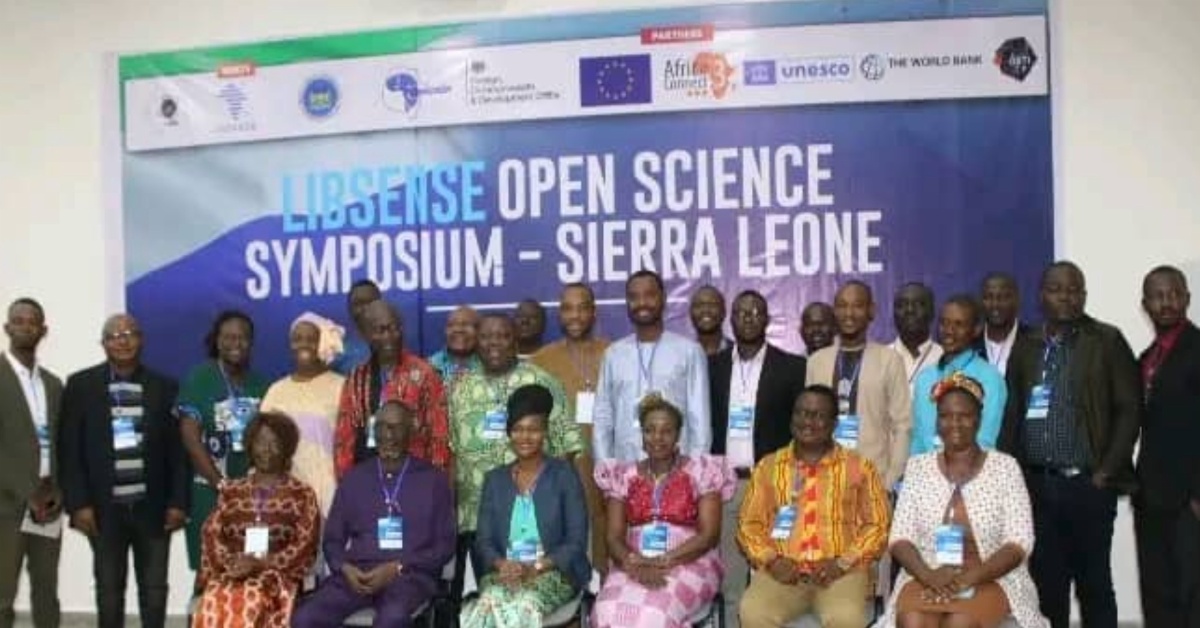The Ministry of Technical and Higher Education (MTHE), Sierra Leone Research and Education Network (SLREN), and the West and Central African Research and Education Network (WACREN) have in a symposium, partnered with key stakeholders of science, research, and innovation to discuss a national approach to open science in Sierra Leone.
The symposium was funded by the UK Foreign Commonwealth Development Office (FCDO) and aims to foster an environment conducive to the adoption of science practices across Sierra Leone’s research community by making open science an integral part of the national agenda.
The Minister of Technical and Higher Education, Dr. Haja Ramatulai Wurie in her opening address, expressed her gratitude to the organizers of the symposium for creating such a platform through which they can shape their vision for building a resilient national open science infrastructure in Sierra Leone.
She stated that open science is not just an abstract concept, but also a force of change that can elevate Sierra Leone’s academic research capabilities, foster innovation, and drive sustainable development.
She urged members to create an enabling policy environment on open science and prioritize openness, collaboration, and equitable access to knowledge.
She further stated that to create an enabling policy environment, there is a need to have a deep understanding of the strengths and weaknesses as well as equip institutions with the right infrastructure to support open data sharing, transparent research practices, and inclusive collaboration.

“If we foster this culture of openness and collaboration, this would empower individuals to contribute to global knowledge, while addressing global challenges,” she said.
She encouraged stakeholders to acknowledge the crucial role of digital libraries, as repositories of knowledge form an integral part of open science as well as serve as gateways for open access to publications, data sense, and educational resources.
“Digital libraries expand our research impacts by offering a centralized platform that researchers, students, and educators can tap into to access a wealth of information”.
She entreated the participants to consider the following essential components during their deliberations which include inclusive collaboration, translation of research evidence into policy and practice, open data publications to enhance global research visibility, open educational resources to ensure that education is accessible and ensures equal learning opportunities for all, and ethical consideration.
She noted that though there is room for improvement, a lot has been done already to change the research landscape in Sierra Leone. “We have made commendable strides in research, and we must capitalize on these achievements,” she mentioned, encouraging members to be intentional with their collaboration both at inter and intra level.
The Deputy Minister of Communications, Technology, and Innovation, Ibrahim Sannoh, expressed delight in being part of the symposium, urging members present to work collectively to leave legacies in terms of ICT development, digitization, and global competitive benchmarks for future generations to be able to compete with the prevailing job market internationally.
“The overarching objective of our Ministry is to create the enabling environment in Sierra Leone to accelerate digitization,” he said.

Key resolutions that the participants agreed on at the end of the symposium are as follows:
The Minister of Technical and Higher Education (MTHE) takes the lead in an inter-ministerial discussion to promote and express a strong commitment to open science principles for research, innovation, and societal progress in Sierra Leone. The participants recommended the formation of a task force comprised of experts from various relevant fields to establish this commitment in the form of a national open science policy.
The Sierra Leone Research and Education Network (SLREN) takes the lead, leveraging its higher education and research communities to support the establishment and maintenance of open science infrastructures.




 Post a comment
Post a comment









